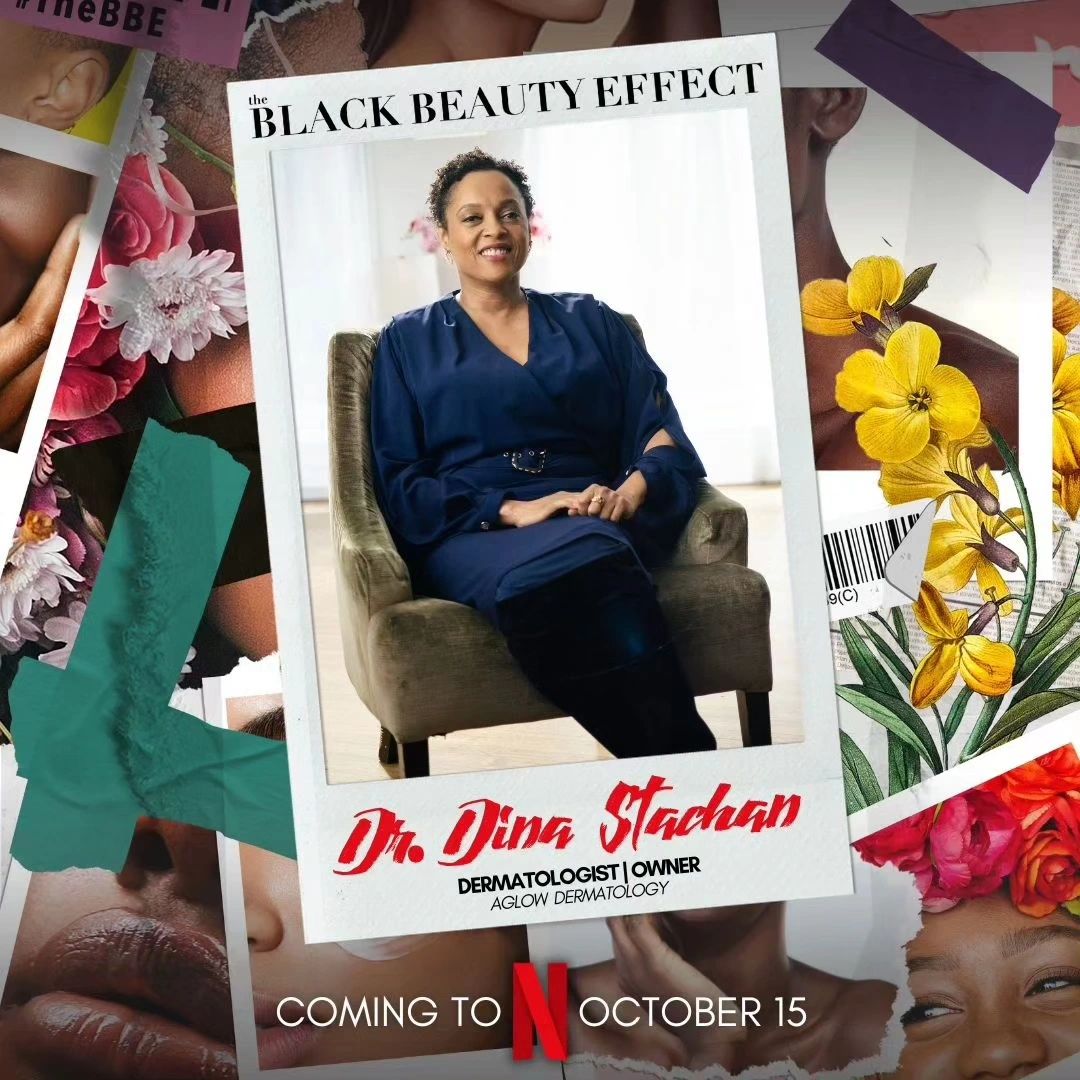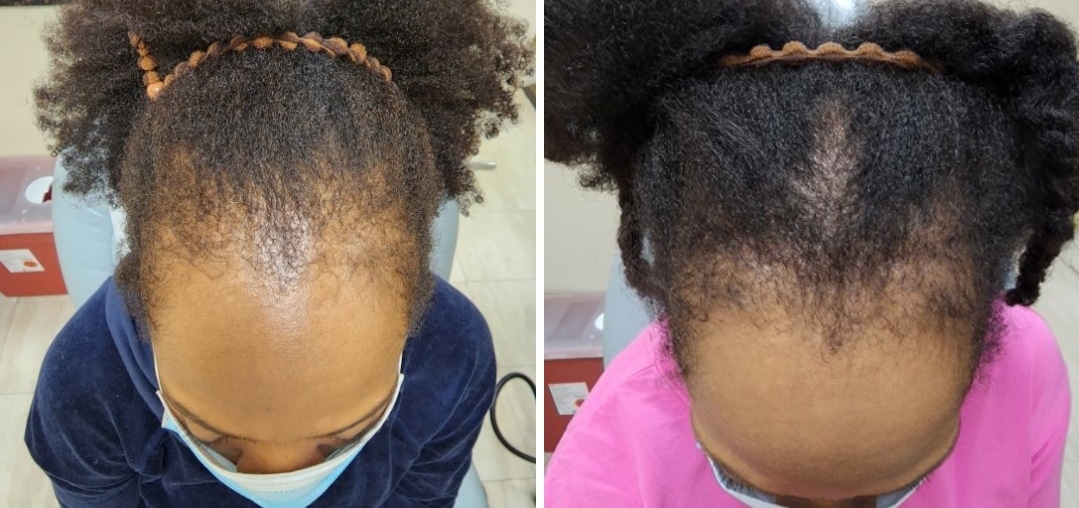
At Aglow Dermatology, we specialize in dermatology for skin of color. Our team offers expert care for patients with richly diverse skin tones and hair textures. Led by Black dermatologist Dr. Dina Strachan, our clinic in New York City provides customized treatments for dermatological needs. Our team specializes in treating African American, Latin, Asian, Middle Eastern, and Native American communities.
New York City is one of the most ethnically diverse places in the world. As the U.S. shifts to a minority-white population by 2025, dermatology must evolve to meet this change. For over two decades, Aglow Dermatology has led this charge. We provide outstanding care rooted in cultural understanding, clinical excellence, and science.
Dermatology, which cares for the skin, hair, and nails, is clearly at the forefront of addressing diversity issues. Skin and hair provide many of our racially defining characteristics. Give the experienced and talented Dr. Strachan a call at 212-627-1004 today to learn more about the various treatments we offer for your skin!

Check out The Black Beauty Effect streaming on Netflix in the US, Canada, the UK, and New Zealand! Dr. Strachan is in episodes 2 and 3.
Skin of Color Expertise at Aglow Dermatology
Aglow Dermatology is proud to offer comprehensive dermatology for dark skin, informed by deep experience and cultural fluency. Dr. Dina Strachan is a renowned Black dermatologist in NYC, celebrated for her leadership in inclusive skin care. Her global perspective and community engagement began long before medical school.
As a native of New York City, Dr. Strachan grew up with ethnic diversity that has become a key foundation in her work. She’s spent time traveling, studying, and practicing in diverse communities from India, Thailand, Jamaica to the Dominican Republic.
She has also visited all 50 states in the USA which she also credits with deepening her insights with respect to diversity.
Dr. Strachan completed her residency at UCSF, where she treated patients from across ethnic backgrounds. Her first board-certified dermatologist position was in South Central Los Angeles, serving mostly African American and Hispanic populations. Today, her work continues to reflect a career-long commitment to excellence in dermatology for skin of color.
She is the founder of FindABlackDoctor.com, a Skin of Color Society member, and a frequently featured media expert. Dr. Strachan has appeared in Essence, Latina, Yahoo Lifestyle, and the Netflix docuseries The Black Beauty Effect (Episodes 2 & 3). Our dermatologist is an internationally sought after expert in ethnic dermatology, a renowned dermatologist for black skin, and African American hair loss treatment.
Media outlets often seek Dr. Strachan’s expertise, as well as health and beauty companies. She was one of the “24 Influencers making black beauty history now” by Essence. She was also part of the first all-black beauty expert panel for Yahoo-Lifestyle in 2020. She has been a consultant for several health and beauty brands, as well.

Understanding Skin Cancer in Skin of Color
"Skin cancer in black people? Or Latino, Hispanic, Native or Asian?" Yes, it can happen!
Although sun related skin cancer such as basal cell carcinoma, squamous cell carcinoma, malignancy melanoma are more common in lighter skin tones, people with dark skin are not immune. And it's important for you and your dermatologist to be aware that when skin cancer appears in people of color, it may presents differently than in people of European descent. In fact, patients of color often receive diagnoses later, resulting in worse outcomes.
And certain types of skin cancer, such as cutaneous T-cell lymphoma, dermatofibrosarcoma protuberans (DFSP) which can look like a keloid, and squamous cell carcinoma of the skin not caused by the sun are more common in people with darker skin.
Everyone, regardless of skin color, should wear sunscreen daily and receive regular skin checks. Our team understands the unique ways that skin cancer presents in diverse skin types and we’re here to protect you.

Treating Pigmentary Disorders in Skin of Color
Changes in skin pigmentation are a common concern in people with darker skin tones. Darker skin tends to react to skin injury by getting darker or lighter. And even people of color with light skin are more at risk of pigmentary alteration compared to whites.
At Aglow Dermatology, we are knowledgable and experienced in treating a range of pigmentary disorders, including:
- Hyper-pigmentation or hyperpigmentation (darkening of skin)
- post inflammatory hyperpigmentation, PIH or PIPA
- melasma
- sun damage or freckling
- Hypo-pigmentation or hypopigmentation (lightening of skin)
- post inflammatory
- sun damage
- aging
- Depigmentation (complete loss of pigment)
- Vitiligo (autoimmune): more visually significant in dark skin, though it affects all races equally.
We provide targeted treatment options, including prescription creams and pills, chemical peels, laser treatments, and topical regimens tailored to your skin issues and tone.
Hair Loss in African Americans and Ethnic Hair
Many people search for an ethic hair expert or a black dermatologist for hair loss. There is a reason.
Hair loss affects people of all backgrounds. Ethnic hair treatment must take into account how different types of alopecia are affected by hair texture, hair color, hair styling practices and other diseases.
People of African descent, or Black people, for example, have the most unique hair texture and thus different grooming requirements. They also often experience certain types of hair loss such as Central Centrifugal Cicatricial Alopecia (CCCA) more frequently than other racial groups.
Asian Americans can experience hair loss differently because they have a lower hair density but greater hair diameter.
People with dark hair, which is more common in non-whites, are more affected by alopecia areata than people with blond hair.
Understanding these racial differences allows us to provide high quality care to people of all backgrounds.
As an internationally recognized African American dermatologist and hair loss expert with expertise in Black hair loss and more, Dr. Strachan provides effective diagnosis and treatment tailored to your needs.
We treat conditions such as:

Watch:
- Aglow Dermatology featured on CBS New York on alopecia
- Alma TED before and after: 1 month after 1 treatment for traction alopecia
Read:
Cosmetic Dermatology for Dark Skin
People of different ethnic backgrounds age differently and have different cosmetic concerns and preferences. There are also different safety concerns depending on skin type and color. At Aglow Dermatology our team is knowledgeable about all skin types, especially skin of color. Dermatological procedures must be appropriate for patients of color to avoid pigment issues or scarring. Aglow Dermatology delivers cosmetic dermatology for skin of color using state-of-the-art technology and extensive expertise.
Our offerings include:
- Aerolase® laser treatments
- RF microneedling
- VI Peel and other custom chemical peels
- Laser hair removal for dark skin
We understand that aging looks different in every ethnic group. Your skin deserves care that celebrates its unique beauty.
Featured in: The Black Beauty Effect on Netflix, AARP: Clichés About Aging That Are True
Medical Dermatology for Skin of Color
Many skin conditions present differently depending on race, ethnic background and skin color. Other specific cultural practices, grooming habits, and lifestyle differences are important to consider in evaluating a person's health problems. At Aglow Dermatology, our approach to medical dermatology for skin of color is highly individualized as we are aware of issues such as:
- African Americans are more likely to be affected by conditions such as keloids and lupus
- Hispanics and Latinos are racially diverse and often complain of melasma
- Asians are more prone to eczema and hyperpigmentation
This nuance matters. Both clinical training and cultural competency shape our diagnostic and treatment plans.
In the Media:
For a consultation, please fill out our contact form.
Schedule a Consultation with a Skin of Color Specialist in NYC
Whether you’re looking for a Black dermatologist, or you're Latina, Hispanic, Asian, Middle Eastern or Native American we have expertise to to provide you high quality care for your skin, hair or nail concern. Ready to receive expert care from a trusted dermatologist in NYC?
Call 212-627-1004
Or fill out our online contact form to schedule your consultation with Aglow Dermatology in New York City.
*Aglow Dermatology is a black owned dermatologist office.

